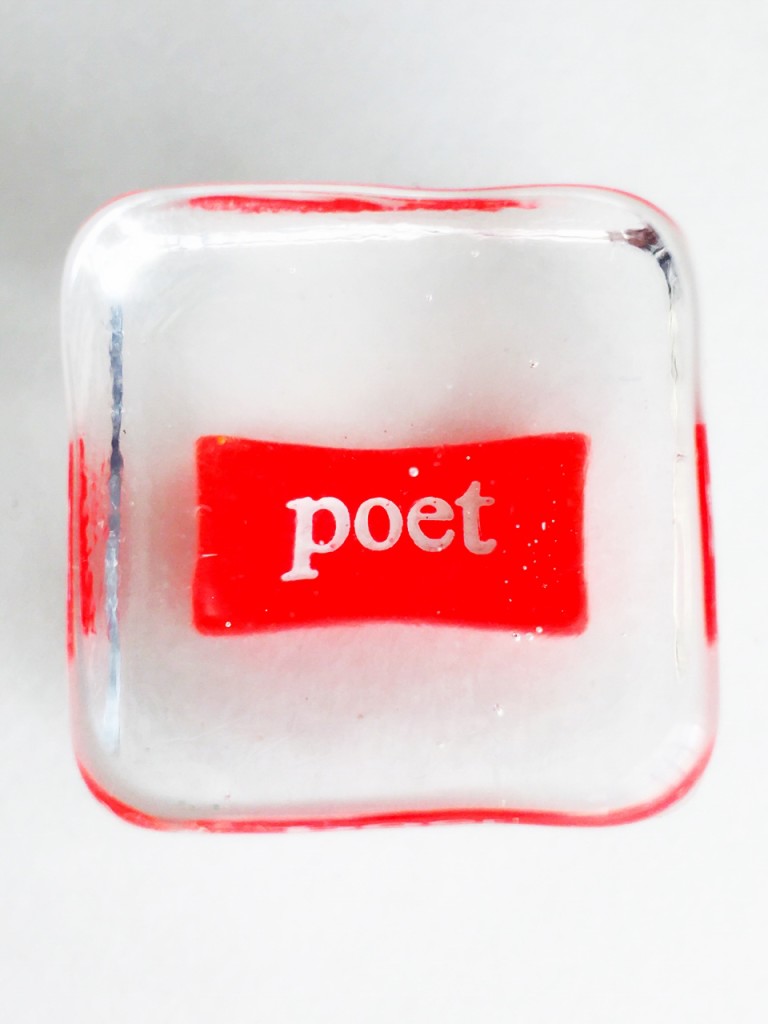
By David Ebenbach
The writer Janet Burroway once famously said that “in literature, only trouble is interesting,” and it’s become a truism in the world of writing. Well, I recently gave a reading where, afterward, I argued that trouble isn’t the only interesting thing in literature. (Honestly, I don’t even think Janet Burroway meant her quote the way we hear it.) And I guess I sounded like a dangerously well-adjusted person for a minute there, because the moderator followed up by asking me how I have anything to write about if I’m not troubled myself. “Doesn’t all literature come out of being miserable?” he said.
•••
Let’s just get this out of the way:
Bupropion, three 150mg tablets once per day, prescribed for dysthymic disorder—that’s depression—usually taken with my breakfast-time glass of cold water.
Though sometimes it’s a glass of seltzer. Because who doesn’t like bubbles?
•••
When my first collection of short stories came out (Between Camelots), a lot of readers asked me the same question:
“But why is your book so sad?”
And I had answers. (In my experience, when you ask authors about their work, we usually do have answers, but we are pretty much guessing, or offering the provisional as fact, or wishing.) My typical answer was that literature in general and short stories in particular are supposed to be sad. After all, per the Burroway quote again, only trouble is interesting. And short stories are long enough to get their characters into trouble, but not long enough to get them out of trouble again.
(This claim of mine is very obviously not true, of course. I can think of a whole lot of good stories where characters end up getting out of trouble. I can even think of a couple of good stories, off the top of my head, where there isn’t any trouble in the first place.)
And then the person would usually go on to ask me this question:
“But why is your book so sad?”
•••
This is the place where I give you the etymology of the word dysthymia. But I haven’t looked up the etymology of the word dysthymia, so I’m going to make it up. Dys probably comes from the Greek for “not” or “can’t” or “against,” or something like that. And thymia, I’m going to say, comes from the Greek word that means “the understanding that good things, lovely things, are also possible in life.”
•••
One thing I know is that there are two worlds: the real world and the writable world. The real world is the real world, every complicated bit of it. The writable world, on the other hand, is what the writer notices and values and sees as material.
The writable world is only a subset of the real world, of course.
In some cases—in some mental states—it’s a very small subset.
•••
Or maybe Dysthymia comes from a single Greek work that describes something big.
I’m talking about an interior howling, a howling that starts up whenever the world reveals a little flaw or problem. You’re out walking and you see a dent in a car door, an abandoned lot, paint peeling from the side of a house, two people arguing, a stray dress shoe lost along the curb, a flush of shame crossing a person’s face. Anything. The size of the flaw doesn’t matter here. Regardless: Howling inside. A howling wind, rising to the chest, a desperate keening, in the throat, cold in the gut.
Anytime. Everywhere.
•••
Maybe this howling—this one voice, consuming but incomplete—is your whole writable world.
•••
But writers worry:
If I do something about my depression…
If I get a therapist, or (even more) if I take pills…
Will it kill the writing?
This can be a very scary question. For a lot of us, sitting down to write is the only thing that ever managed to quiet the howling. Not completely, and not for very long, but still—some relief there.
What if I lose the writing?
•••
Mental illness is the worst kind of illness, it seems to me, because it’s the only kind that produces excuses and lies to protect itself. When you get the flu or break a leg or have a heart attack, you never think, “Oh I should just work through this on my own.” You never think, “Well, this is just my artistic temperament.” You never think, “But I need this problem, for my work.”
Asthma means “You should do something about this.”
Diabetes means “You should do something about this.”
Cystic Fibrosis means “You should do something about this.”
And Dysthymia means…?
•••
You worry that writing is going to leave you.
In fact, you are so committed to writing that you’re willing to neglect your mental health just in case mental health is a threat to your work.
(Does that sound like a person who’s ever going to stop writing, with or without pills?)
•••
Does all literature come out of being miserable?
I’d like to answer that question with a different question: What about all the literature that never arrived because of being miserable?
What would Virginia Woolf have gone on to write if depression hadn’t killed her at the age of fifty-nine? What would Anne Sexton have written? David Foster Wallace? Sylvia Plath? Ernest Hemingway?
•••
My experience:
First there were the pills that didn’t work or caused other problems—side-effects and whatnot. It took a little while to find the right ones. But now I’ve been on the right ones for something like nine or ten years.
Life is better. And I don’t just mean that I feel better, though I certainly do. I mean that I look at life and see that it is a more complicated, better thing than I used to believe.
The howling has quieted.
And it turns out I still need to write as much as I used to. Or maybe more.
I mean, it’s been a busy nine or ten years, these years of medication:
In the three-and-a-half decades before the pills, one short story collection—my book Between Camelots—was published.
In the one decade since, three more books of fiction got published—including a new story collection and a first novel this year—plus a poetry chapbook, a full-length book of poetry, and a non-fiction guide to the creative process.
This is not the story of a person who’s lost his writing.
•••
Meanwhile, my writable world has gotten a lot bigger. I still write about the sad things, because sadness is part of the world’s truth, but it’s only part of it, so I also write about the ridiculous things, the electric things, the absurdity, the quiet beauty and the louder beauty of things.
A writer who believes that things are only sad is a writer somewhat out of touch with reality.
It’s as if I had been working for many years in a tiny room, staring at a tiny few things to write about, and now I’m working in a great big room—or, in fact, out in the open world—staring at everything, seeing things I’ve never been able to see before, seeing it all.
This also means seeing things—even stuff I’d already been in the habit of noticing—in their full complexity. It’s a bummer that the car has a dent in it, sure, but it’s still a car; it can still take people places. The house with the paint peeling is still a house; people can take shelter there. The two people argue and the other person’s face flushes because those people care about something.
•••
Now, I’m not saying pills work for everyone. I’m not saying therapy works for everyone. (Though I think there are a lot of folks who would benefit from both.) I’m not even saying that pills and therapy solve everything. As a matter of fact, one of the reasons I still need to write is that, when I don’t, I do get a bit sad again. Not as sad as before, but a bit. In other words, writing still supports me. It’s just that now it has help.
What I’m really saying is I no longer believe that only trouble is interesting.
•••
What if your writing had more than one voice? What if it had the whole world to draw on?
•••
After I get done with another morning of writing, I come out of my office and pour myself a glass of water (or seltzer) and start a bagel toasting, and then I open the little prescription bottle.
Bupropion pills are tiny and white and round and smooth. Even taking three at once, even in the same swallow as a B-12 vitamin, they go down very, very easily.
•••
DAVID EBENBACH is the author of seven books of fiction, non-fiction, and poetry, including, most recently, the novel Miss Portland. His work has been awarded the Drue Heinz Literature Prize, the Juniper Prize, the Patricia Bibby Award, and more. Ebenbach lives in Washington, DC, where he teaches creative writing at Georgetown University. Find out more at www.davidebenbach.com.

 Follow
Follow
